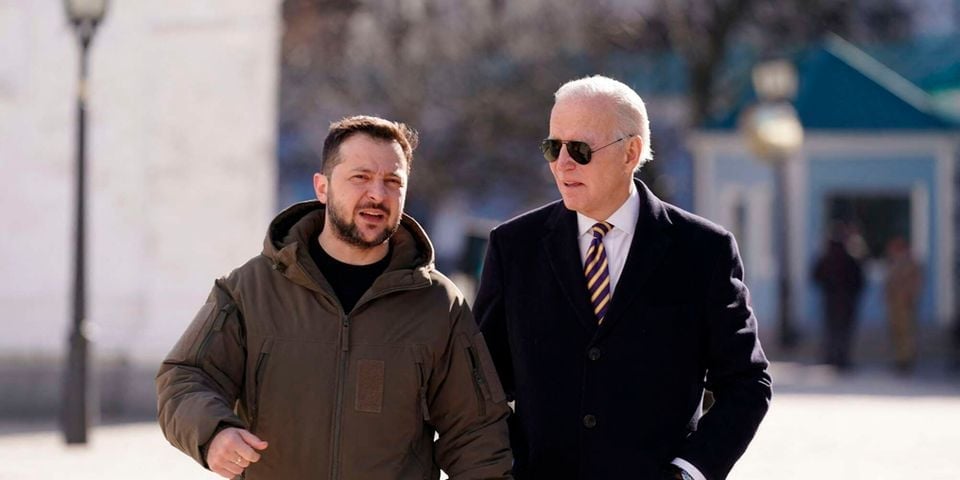Prime
Ukraine war a crucial moment for Africa – Uganda’s envoy

Uganda’s Permanent Representative to the UN Adonia Ayebare. PHOTO/ FILE
What you need to know:
- The war, which started on the backdrop of the continent recovering from the Covid-19 pandemic and has occasioned spiralling inflationary pressures, soaring food and fuel prices and tightening of fiscal space, has also challenged the Western binary and put multilateral institutions such as the UN at crossroads
Russia’s year-long war in Ukraine that has unsettled multilateralism and raised stakes in international diplomacy could as well pose an advantage for Africa to push discussions on UN reforms, Uganda’s Permanent Representative to the UN Adonia Ayebare has said.
The war, which started on the backdrop of the continent recovering from the Covid-19 pandemic and has occasioned spiralling inflationary pressures, soaring food and fuel prices and tightening of fiscal space, has also challenged the Western binary and put multilateral institutions such as the UN at crossroads.
At the UN headquarters in New York, Mr Ayebare told this publication there is an emerging trend of the centre of power shifting from the UN Security Council (UNSC), the exclusive world’s most powerful body, to the UN General Assembly (UNGA), the conclave of the 193 UN member countries.
“The UN Security Council was designed to deal with peace and security of the world, but the way the UN charter (foundational treaty of UN) was designed is in such a way not to resolve conflicts between superpowers; it was made for smaller powers on which power can be exerted,” Mr Ayebare said.
He added: “Now as we have seen with the Russia-Ukraine conflict, action has moved from the UNSC where each of the five permanent members have a veto vote and rarely reach consensus to the UNGA where all countries have an equal say. The UNSC is paralysed and as such has failed to address one of the major crises (Ukraine war) since World War II.”
The UNSC is comprised of five permanent members—US, UK, Russia, China, and France, and 10 non-permanent members elected for two years by the UNGA. There have been numerous calls for Africa, a continent of 55 countries and a combined population of 1.4 billion to have permanent representation on the UNSC, which move—as part of the wider UN reforms— has been welcomed by some powers like China.
Mr Ayebare said the case of reforming the UNSC is “louder now than before.”
“At the UNGA all countries have a single vote and that is good for multilateralism,” he added.
Multilateralism is the prevailing world order birthed 78 years ago after World War II that requires countries to follow international norms and principles and pay respect to international institutions such as the UN.
The system has come under immense pressure over the years, especially with some superpowers like the United States acting unilaterally to protect national interests. Russia’s invasion of its former Soviet territory—Ukraine—last February further punctured the system.
The Russia Ambassador to Uganda, Mr Vladlen Semivolos, told this publication in an interview last Friday the current system is flawed—with Western (United States and European Union) hegemony still dominant—and needs recalibration.
“From the Russian angle we are fighting for a multipolar architecture where the voice of each country is heard. The idea of the West is to dominate; like how they come to Uganda and start lecturing you LGBT, human rights, and democracy. We think the composition of the world should be multipolar (distribution of power between three or more countries/alliances,” Mr Semivolos said.
Some international experts have opined that the world today is becoming more multipolar and less multilateral, especially with more emerging powers in Africa and Asia, however, reconciling the two viewpoints remains contentious and continues to fracture international politics.
Mr Ayebare said: “I think Africa can take advantage of this to push for reforms, not just the UNSC but even the Bretton woods like World Bank and IMF where Africa don’t have a say; that would change multilateralism for the better.”
The Russia-Ukraine war, which according to the UN has so far killed 8,000 civilians and left some 13,300 injured, has particularly thrust African countries allied to both the West (US and EU) and Moscow for foreign and military aid, respectively, between a rock and a hard place.
During the UNGA vote late-last month, 141 countries backed the resolution calling for a “comprehensive, just and lasting peace” in Ukraine. Thirty-two countries including Uganda abstained from voting, while seven countries, including Russia, voted against it.
Mr Semivolos said: “Do you know what and how much pressure has been used by Western countries on African countries to vote that way? We understand the African countries that voted against us and are very thankful for the objective position taken by other countries like Uganda and we respect that position.”
Mr Ayebare said there is a good case for Non-Alignment, especially in the multipolar world.
“And this Non-Alignment is different from the one of the Cold War. Now we have strategic Non-Alignment which means that you don’t need to be neutral; you can deal with both sides,” he added.




